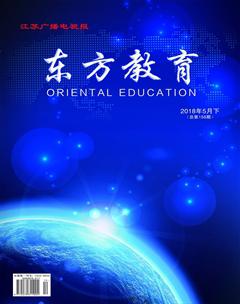One—to—one writing conferences in ESL writing classrooms
Abstract:An alternative of a one-to-one writing conference is used in learning English as subsequent language (ESL) classrooms. Since the one-to-one writing conference is not so beneficial for ESL teaching and learning if some factors have not been involved in its pedagogical use. This paper will argue six factors that should be included in the writing conferences.
Key words: one-to-one writing conference; ESL; pedagogical use
A one-to-one writing conference seems a useful and favorable way to offer feedback in teaching and learning ESL writing. Six factors should be taken into consideration to guarantee its success and significance.
First, in Goldstein and Conrads study (1990), students have dissimilar degree of negotiation when they meet their teacher. To avoid the failure, teachers should pay more attention to the successful negotiations with their students when they give feedbacks.
Secondly, teachers own writing proficiency is another factor. If teachers are not familiar with writing principles and language expressions, the teachers may confuse both the students and themselves.
Thirdly, students diverse cultural backgrounds should be considered. Storch and Wigglesworth (2010) have mentioned in their study, learners beliefs, attitudes toward the form of feedback they have received, and their own goals all influence the acceptance of teachers feedback and their own language retention. In particular, McCarthey and Garcia (2005) conducted a study which shows the two groups of participants really showed dissimilar level of writing preference and proficiency due to their different culture backgrounds, teacher expectation and home encouragement.
Fourthly, according to different learning styles, teachers should make the decision of whether to provide only one-to-one writing conferences, only written feedback, or the combination of both written feedback and one-to-one writing conferences to their students.
Fifthly, in the one-to-one writing conferences, teachers always need to take the proportion of students autonomy and participation into account. Hyland (2000) indicates that teachers always cannot control their intervention of students writing and revising process; also, teachers should not override their students decision of feedback.
Lastly, one-shot writing conferences should be avoided in the ESL teaching process. Teachers should provide multiple writing conferences for students to assist them taking autonomy positions and get more useful feedback and knowledge.
References
Goldstein, L. M. & Conrad, S. M. (1990). Student input and negotiation of meaning in ESL writing conferences. TESOL Quarterly, 24(3), 443-460.
Hyland, F. (2000). ESL writers and feedback: Giving more autonomy to students. Language Teaching Research, 4(1), 33–54.
McCarthey, S. J. & Garcia, G. E. (2005). English language learners writing practices and attitudes. Written Communication, 22(1), 36-75.
Storch, N. & Wigglesworth, G. (2010). Leaners processing, uptake, and retention of corrective feedback on writing. Studies in Second Language Acquisition, 32, 303-334.
作者簡介:张芊菁华(1987-),女,汉族,陕西省西安市人,助教,英语教学硕士,单位:武警工程大学基础部外语第一教研室,研究方向:英语教学理论与实践。

